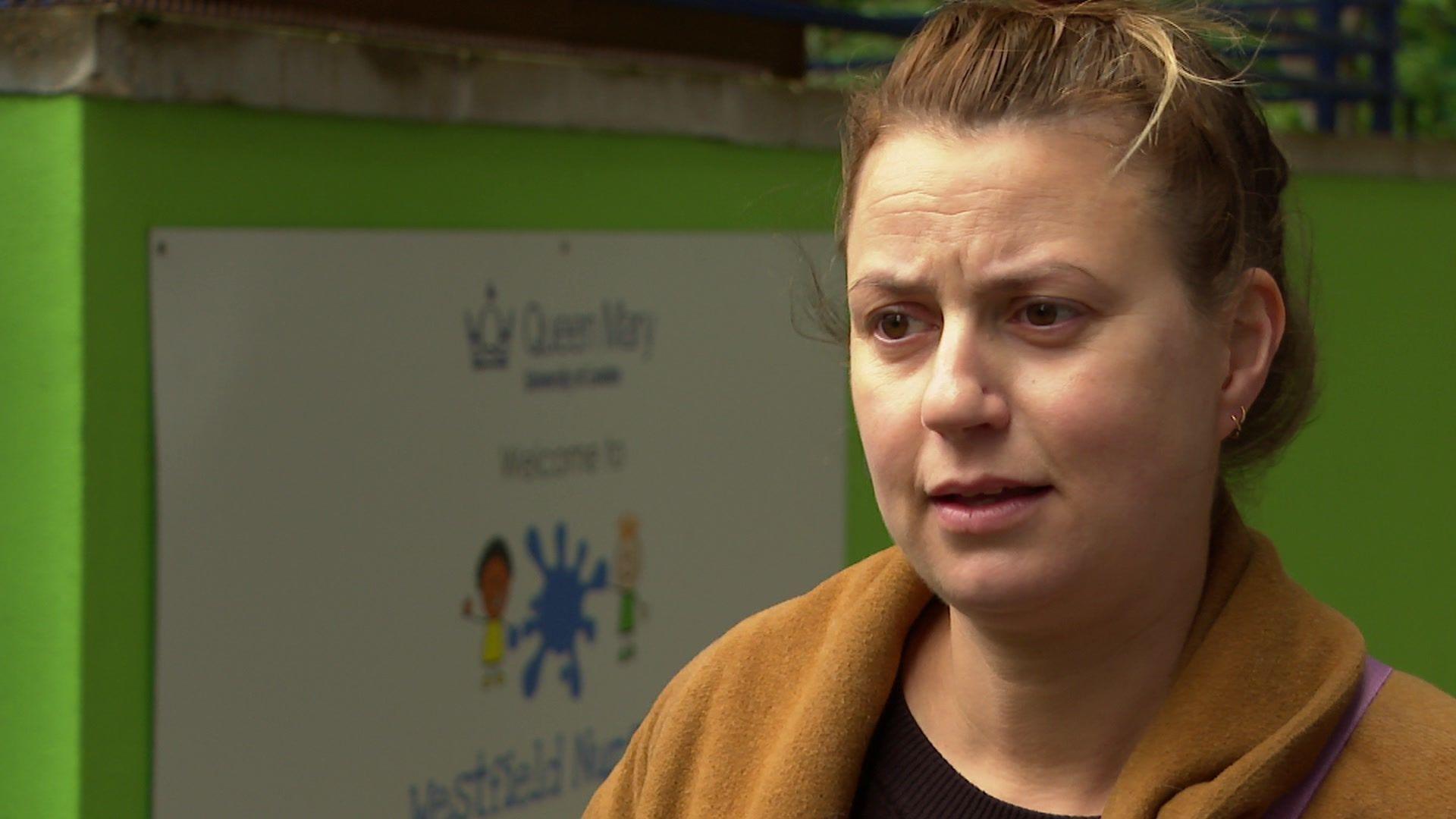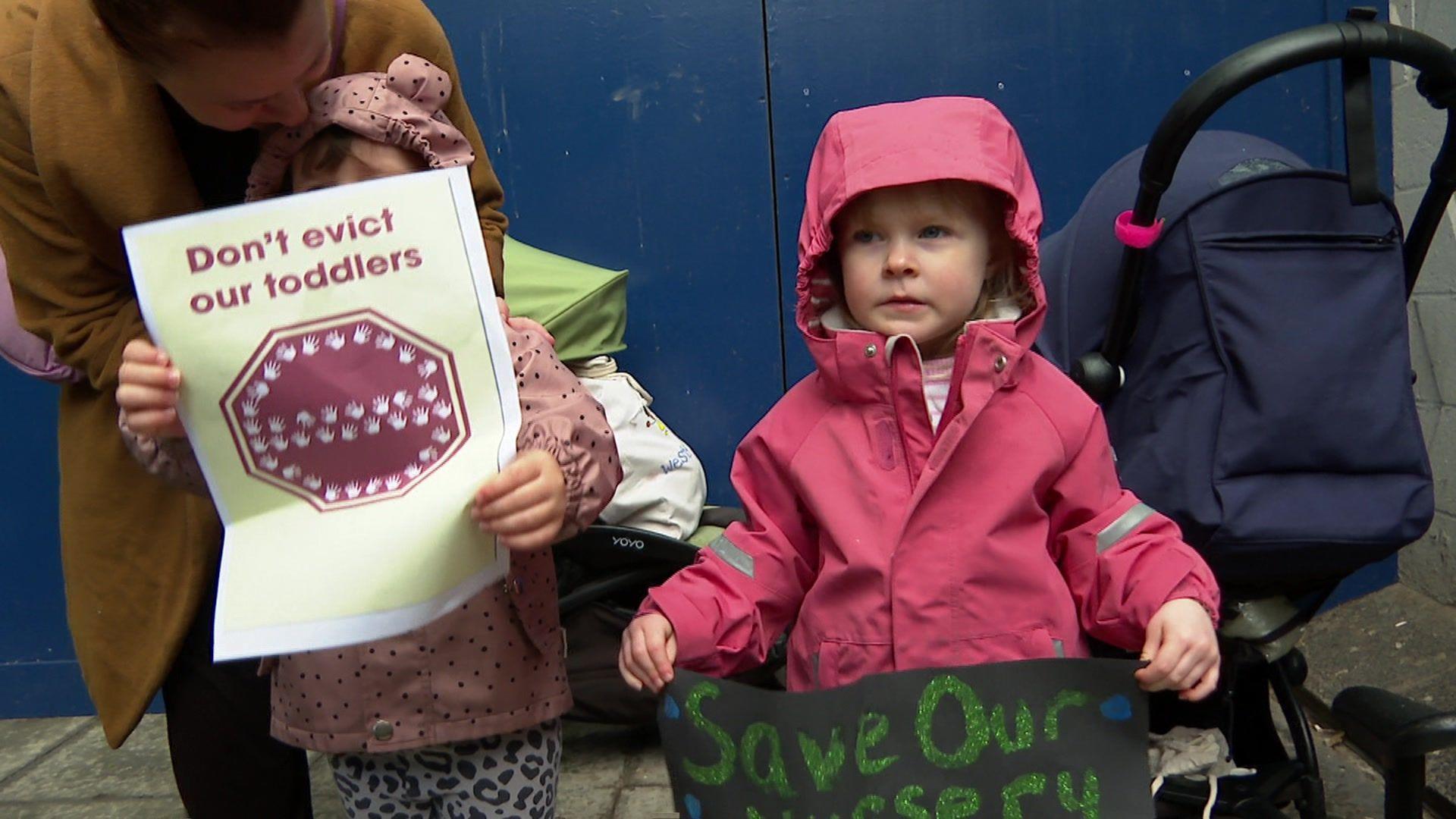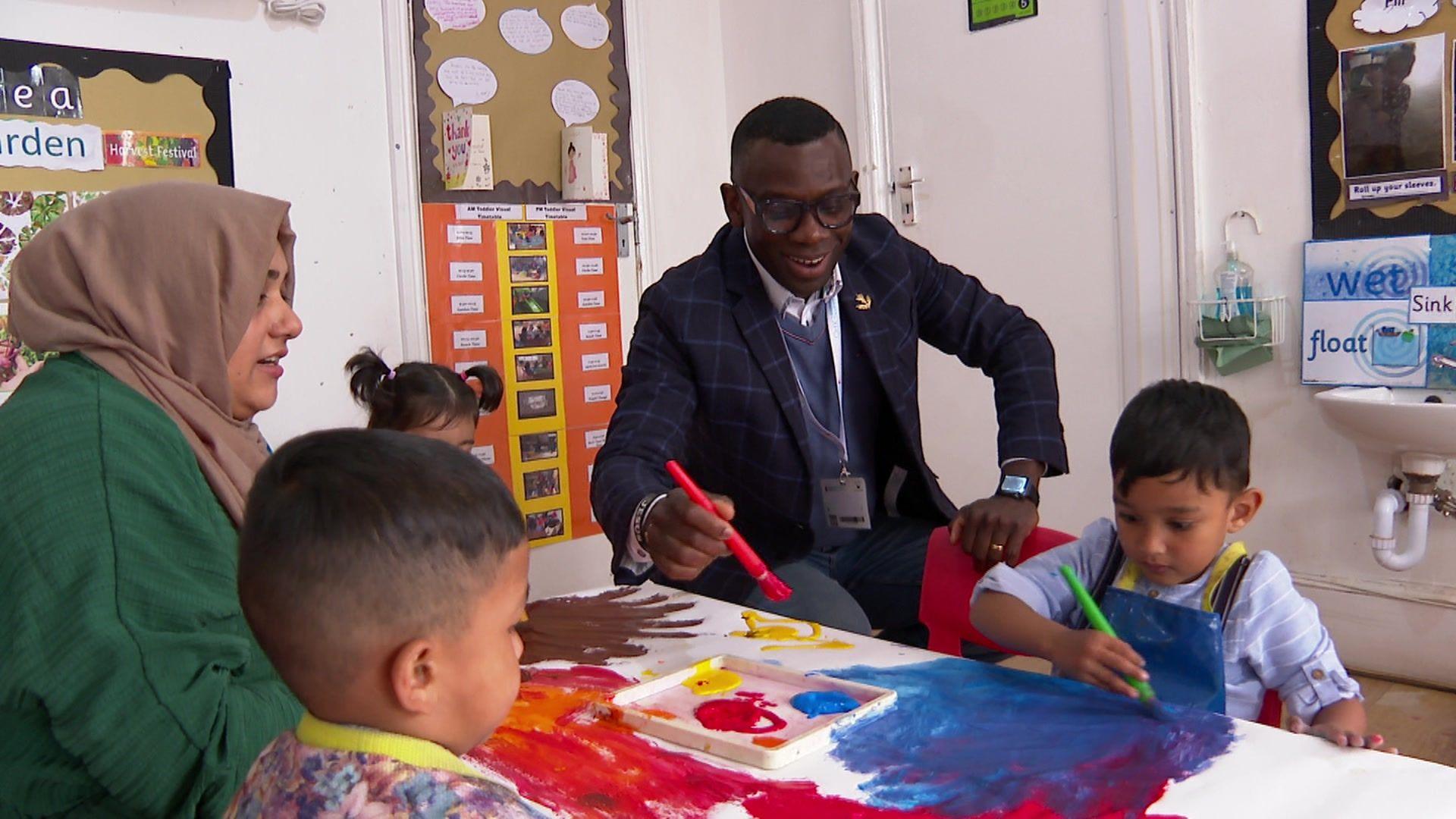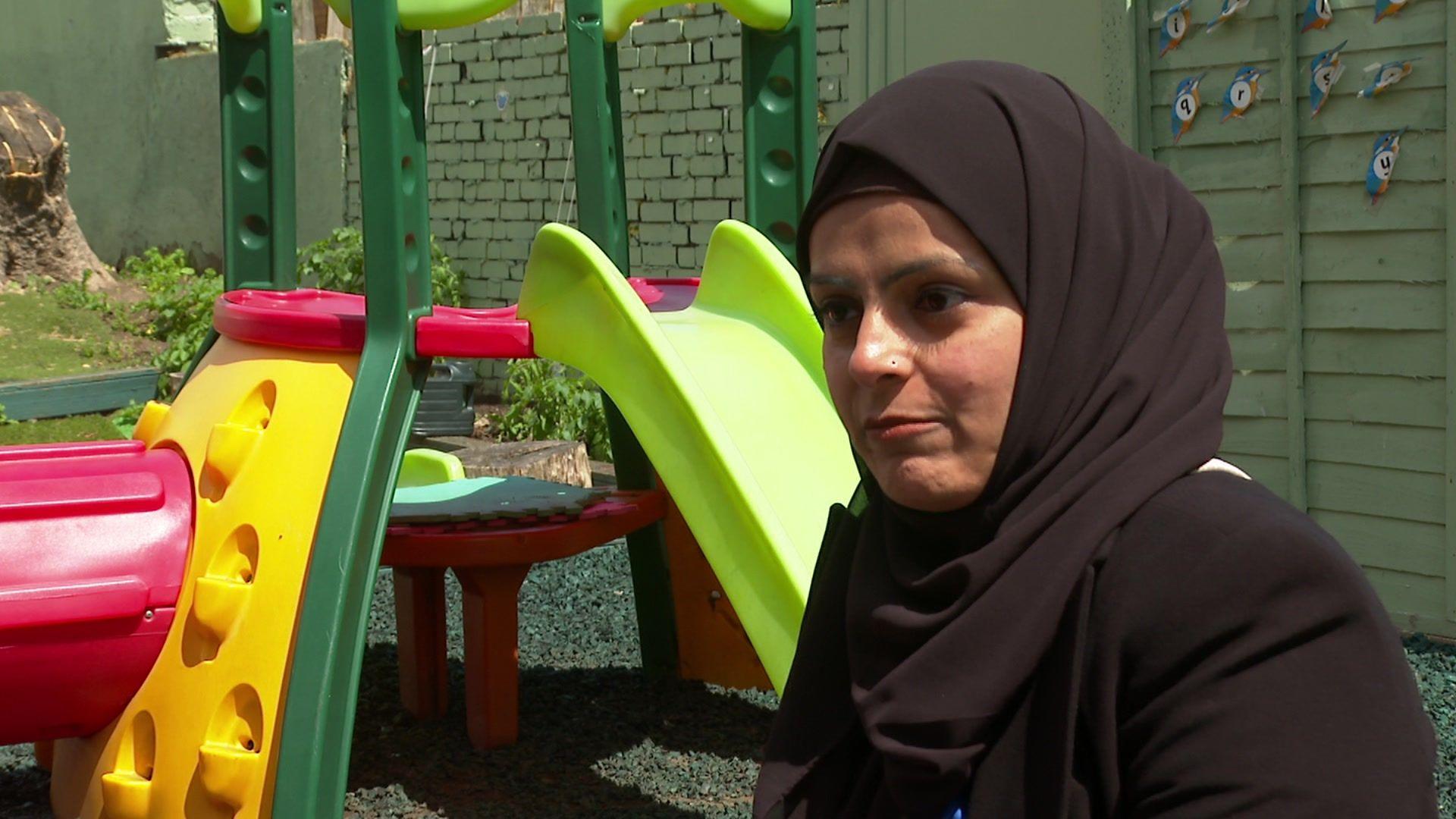Childcare provision makes us really angry - parents

One parent at Westfield nursery, Jemma Gander says they were told Westfield nursery had to close due to a funding deficit
- Published
Newham, Barking and Dagenham and Brent have the lowest rate of childcare places in London, new statistics from the Office of National Statistics show.
Areas with lower levels of access to childcare are generally more likely to have lower household incomes, and a higher proportion of children living in poverty.
Newham had 16 places available for every 100 children, Tower Hamlets had 22.
One nursery in Tower Hamlets earmarked for closure is Westfield nursery at Queen Mary University.

Children protesting outside Westfield nursery following news of the closure
There is a petition of 800 signatures to keep the nursery, which is consulting on closure with a view to shut on 16 August, open.
The university has said it does not have enough university staff who are using the places. Parents say they were told the nursery is making a deficit.
One mum, Jemma Gander, told BBC London: "They've said it's not making enough money, that's the bottom line.
"Lots of other parents are now looking frantically for other nurseries in the vicinity; one that we had on our list is closing too due to funding being pulled.
"So nurseries are closing all over the show, and the ones that are open have waiting lists for month and months.
"It might be that some of the age groups can't get a place until 2025. I think of a lot people are going to find themselves very stuck.
"We looked around every other local nursery and we chose this one, so it makes us feel really angry that they're treating us like we're just a minor inconvenience in their business plan."
Waiting lists of 'months and months'
Childcare in London costs nearly double than in the rest of the country, a London Assembly Economy report found.
It also found that there has been a year-on-year reduction in the number of childminders operating in London.
To help with those costs, in the Spending Review last year the government announced plans to expand the number of free hours available to parents.
From April, working parents with two-year-olds became eligible for 15 hours of free childcare.
Previously, 30 hours of free childcare was available to working parents with children aged between three and four, although that was limited to 15 hours a week if one parent earned more than £100,000.

Director of Sparkles nursery, Rev Claude Halm says running costs have gone up
In September, 15 hours of free childcare was to be expanded to youngsters aged between nine months old and two - extending to 30 hours a week from September 2025.
In Newham, at Sparkles Nursery in East Ham, director the Rev Claude Halm says the main challenge he faces is the increasing cost of running the place and higher wages for staff.
Dr Halm said he would like to see the next government keep the extension plan and expand it.
A mother at Sparkles, Laila Matloob, told BBC London: "I always wanted to carry on my work, because before having my son I was working full time, but after having my son I realised the cost of childcare was very high so I had to leave my job - but 15 hours at a certain age helps me.
"I do want to go back but I have certain limitations. At home I don't have any other help as my husband works. I think there should be more hours given."

Parent of a child at Sparkles, Laila Matloob, thinks there should be more hours given funded by the government
In addition to the policy already set in place, the Conservatives further set out in their manifesto for the upcoming general election that they would commit to increasing hourly funding rates over the next two years by an estimated £500m.
Munira Wilson, the Liberal Democrats' education spokesperson, said: “The Liberal Democrats’ plan would give new parents the choice and flexibility of childcare they need, backed up by a package of proper support."
She added that the party would review the rates paid to providers for free hours to ensure they cover the costs of delivering childcare, developing a career strategy for nursery staff and replace the three different current registration processes with a single childcare register.
More on childcare in London
Sudden nursery closure shocks parents and staff
- Published1 June 2024
Nurseries warn over free childcare plan's efficacy
- Published31 March 2024
Central London exodus puts pressure on suburbs
- Published2 January 2024
Labour's Bridget Phillipson said: “The evidence is clear: school-based nurseries deliver high-quality education, which enables children to achieve and thrive when they are at primary school.
“The 3,300 new nurseries will be key to delivering Labour’s mission for half a million more children to hit the early-learning goals by 2030, giving them the firm foundations from which to succeed."
A Queen Mary University of London spokesperson said, on behalf of Westfield nursery: “We have taken the very difficult decision to close our university nursery.
"Since the pandemic, work patterns have changed and the number of children attending the nursery has consistently been significantly below capacity.
"Currently, out of a total workforce of over 5,700, only 23 members of staff are using this in-house service, resulting in a running loss of approximately £250K per year.
Listen to the best of BBC Radio London on Sounds and follow BBC London on Facebook, external, X, external and Instagram, external. Send your story ideas to hello.bbclondon@bbc.co.uk, external